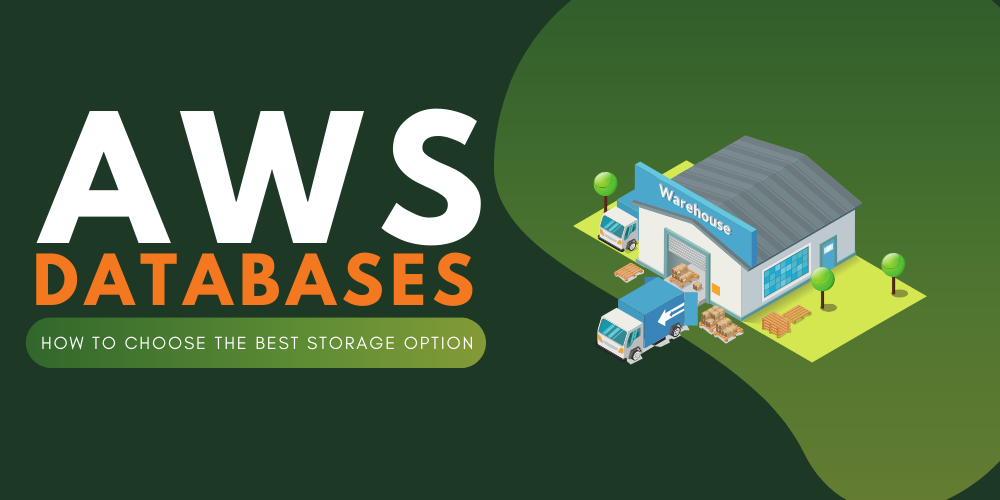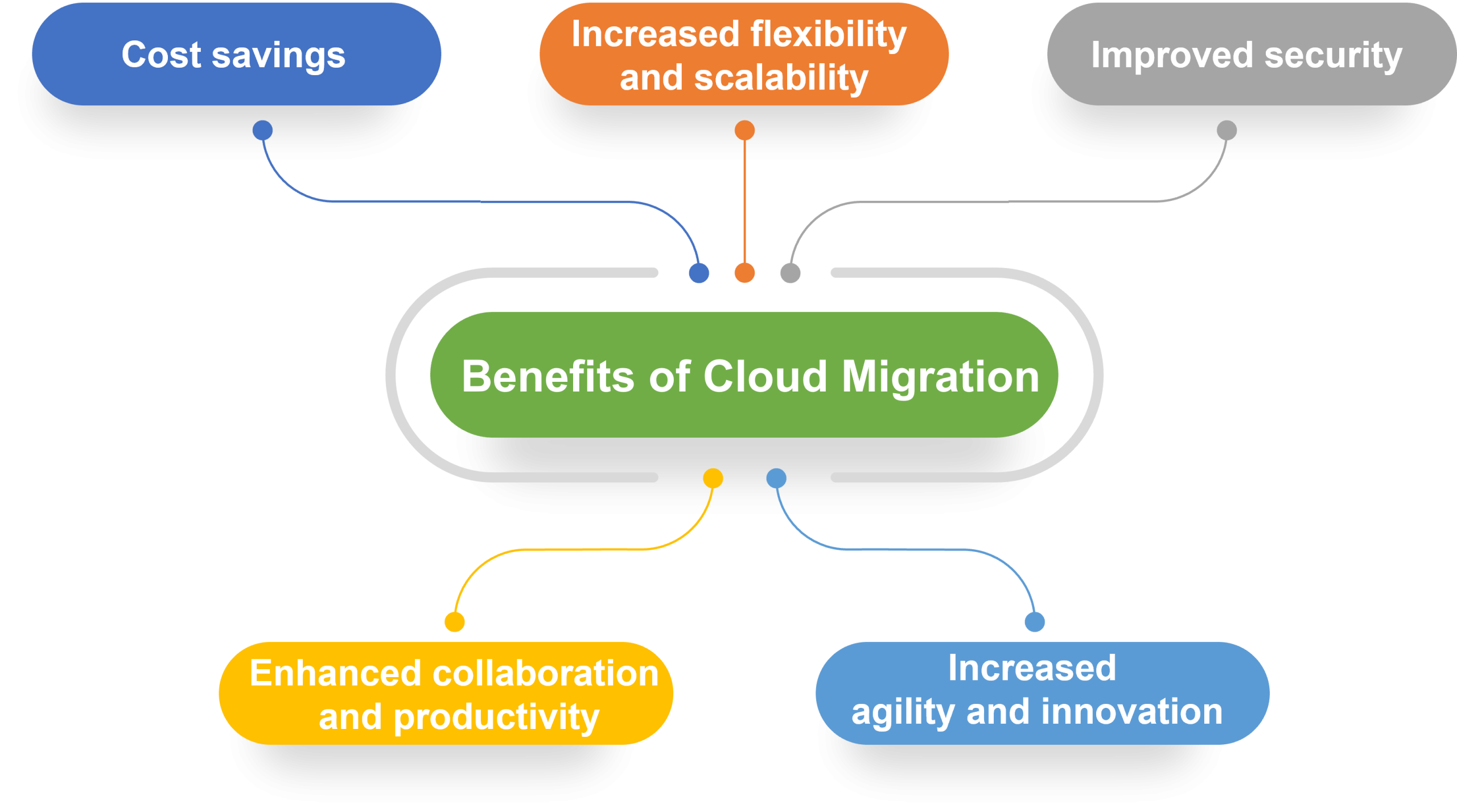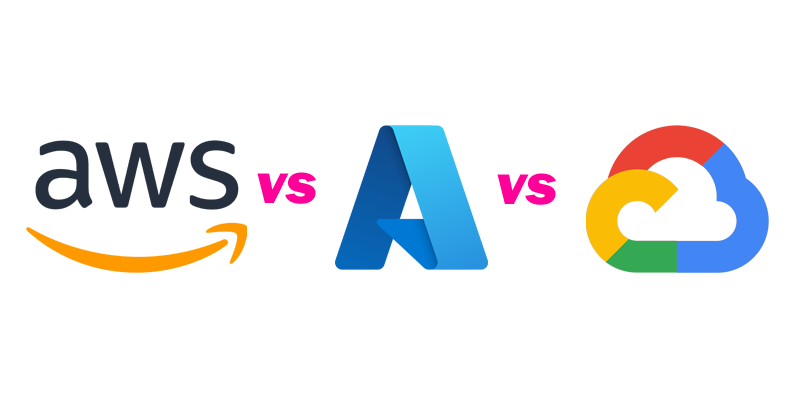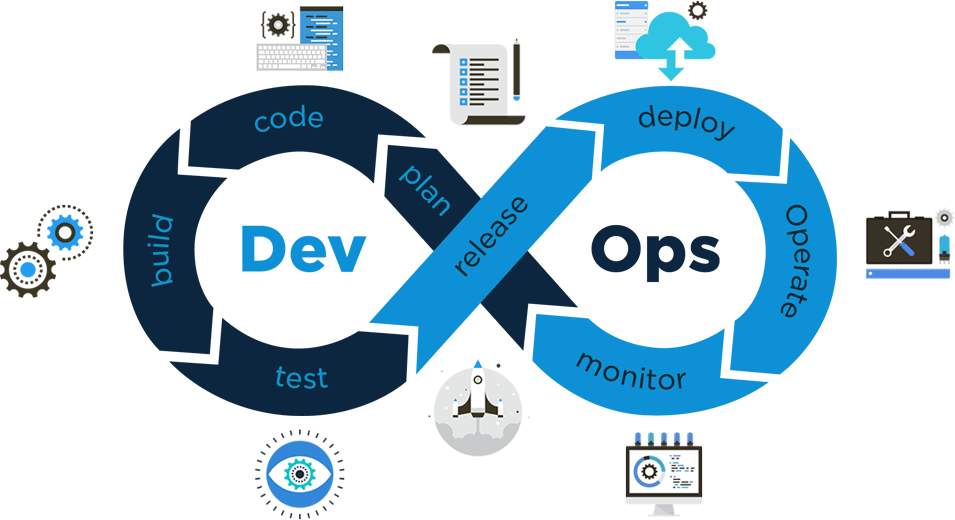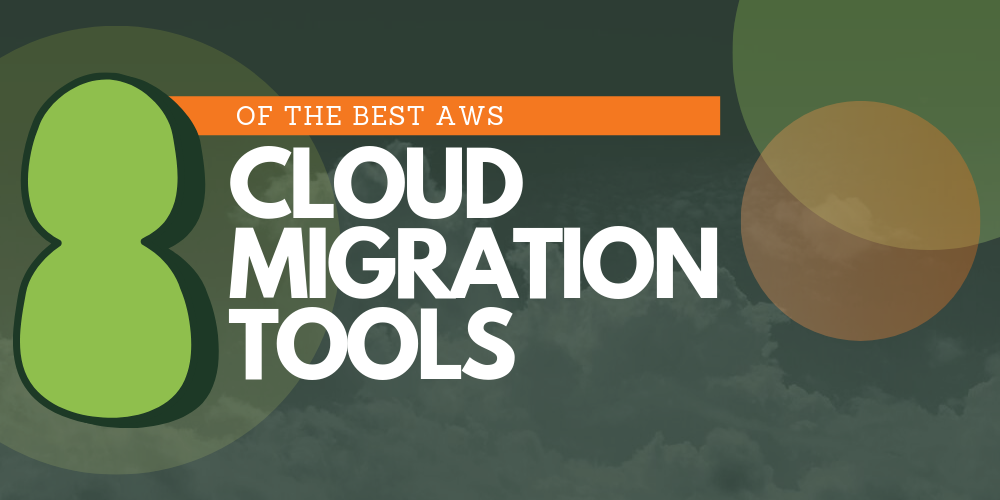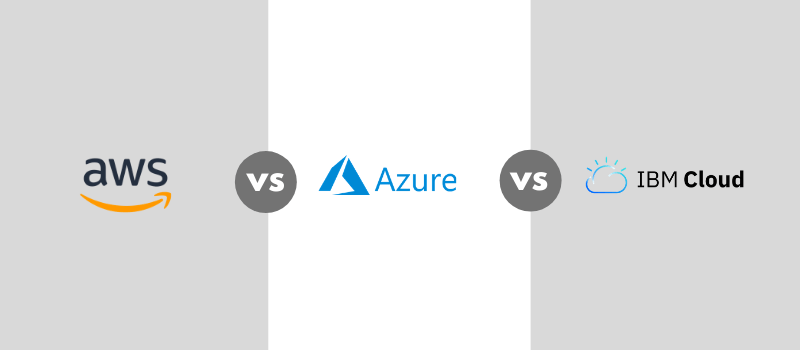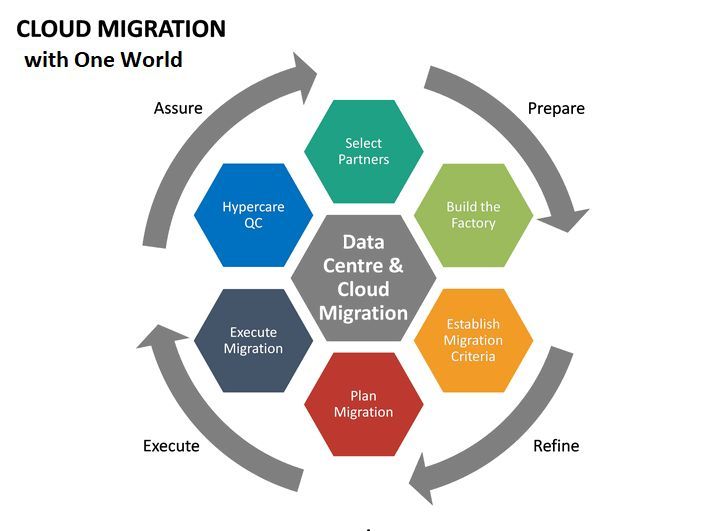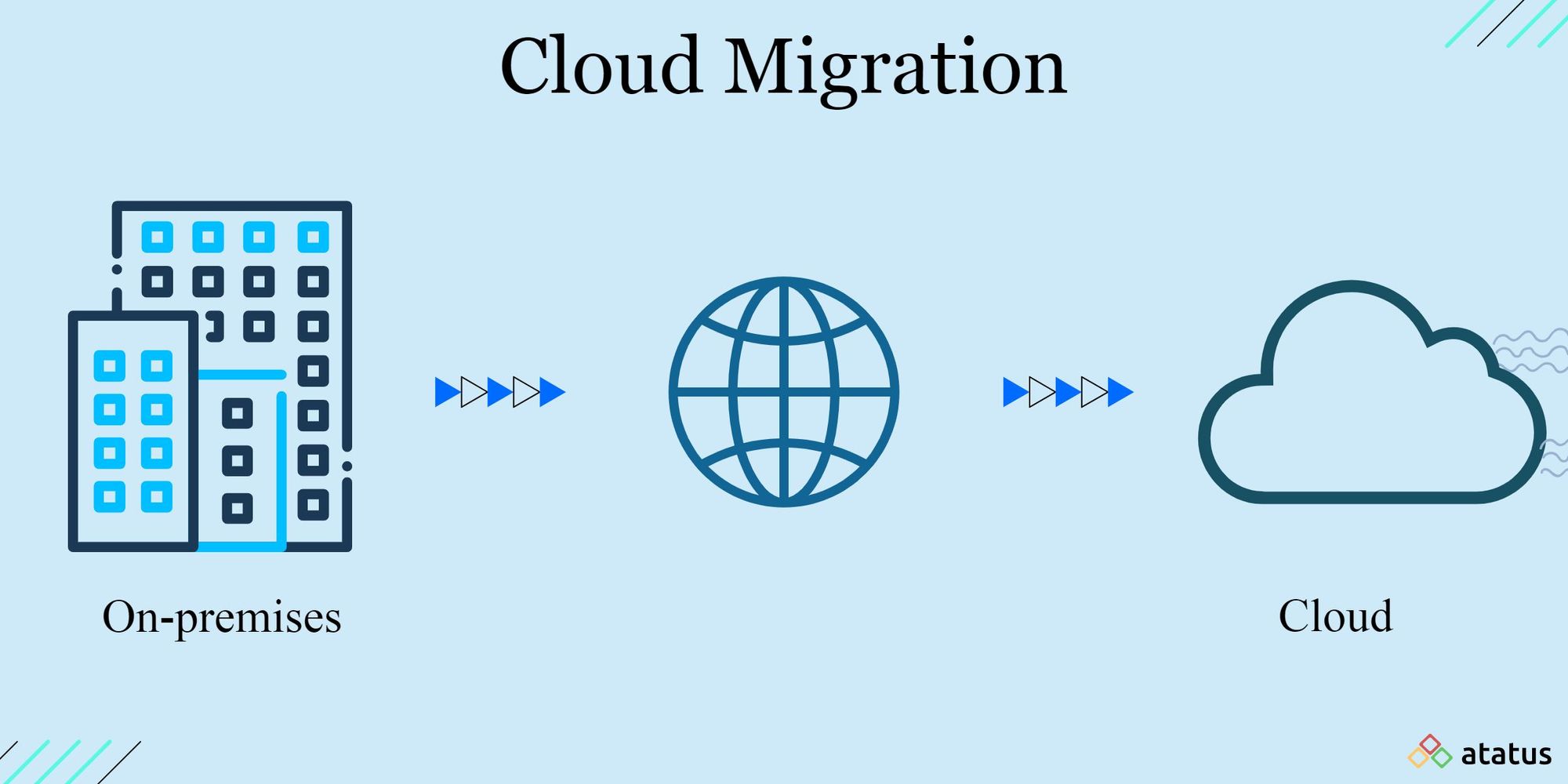Top Cloud Migration Service Providers in 2024: A Comprehensive Review

Introduction
With today’s rapid technological progress, cloud migration is becoming increasingly vital for businesses looking to improve their efficiency, scalability, security, and reliability. As we approach 2024, there is a greater need than ever for seamless cloud migration options. This blog will provide a detailed analysis of the top cloud migration service providers, focusing on their critical role in driving organizational transformation. These service providers have a significant impact on the future of cloud technology by optimizing resource allocation and cutting prices, as well as ensuring stringent security measures and promoting collaboration.
What is cloud migration?
The act of moving an organization’s digital assets (such as IT operations, data sets, and software applications) from conventional data centers into cloud-based environments is called cloud migration. This strategic transition offers companies the ability to take advantage of features like expansive capabilities, adaptability, and economic advantages provided by these virtual computing solutions. The objective of migrating to the cloud is mainly to enhance operational efficiency, cut down infrastructure expenses, and take advantage of the scalability features offered by Cloud Service Providers (CSPs). To successfully move data to the cloud, it’s important to plan and assess workloads carefully. Choosing the right CSPs guarantees a safe transfer of important data while operations continue.
The Vital Role of Top Cloud Migration Service Providers
Top cloud migration service providers drive organizational scalability and flexibility by optimizing resource allocation and reducing costs through scalable infrastructure adjustments. Adopting a pay-as-you-go model, these providers enable significant cost savings, particularly beneficial for organizations with budget constraints.
These providers prioritize robust security measures, ensuring data protection and autonomous compliance with industry regulations. Cloud migration services centralize data and applications, enhancing collaboration and accessibility for remote teams, thereby fostering productivity.
In addition, top providers handle automatic updates and maintenance, relieving businesses of the burden of infrastructure upkeep while ensuring continuous security improvements. In summary, these providers play a pivotal role in delivering seamless, cost-effective, and secure cloud migration solutions for organizations.
The Top Cloud Migration Service Providers
Various cloud migration consulting companies guide businesses through the dynamic landscape of cloud data migration strategy, guaranteeing seamless transitions and maximizing the full potential of modernization. They are:
Amazon Web Services AWS
Amazon has unveiled Amazon Web Services (AWS), a comprehensive cloud computing platform offering a wide array of services, including a cloud migration strategy AWS, encompassing storage solutions, databases, machine learning, analytics, and Internet of Things (IoT) capabilities. AWS streamlines the transition of businesses to cloud-based platforms by providing a scalable and reliable infrastructure. Its services range from essential storage solutions to advanced artificial intelligence features, empowering enterprises with seamless application development and expansive growth opportunities.
- Key Services:
- Migration projects can now be centrally tracked using AWS Migration Hub.
- Cloud-based EC2 offers to compute highly scalable capacity.
- S3 provides exceptional durability as an object storage service in the industry.
- Provisioning servers is no longer necessary for running code when using AWS Lambda’s serverless computing approach.
- Why are they the best?
With its far-reaching global network, unparalleled flexibility, and comprehensive array of offerings, cloud migration strategy AWS stands out as a leading provider. The company’s resolute dedication to security and compliance – coupled with its commitment to innovative technology – renders it the premier choice for organizations in search of reliable cloud solutions replete with advanced features. By selecting AWS as your partner you gain entry into an exceptionally strong ecosystem that can accommodate diverse workloads and satisfy myriad business demands.
Microsoft Azure
Developed by Microsoft, Azure is a comprehensive cloud migration in cloud computing platforms and services. It provides a range of options, including virtualized computation, storage capacity, networking capabilities, and analytics solutions. Additionally, Azure offers a diverse set of tools for deploying and creating applications. Streamlining the transition to cloud technology, it leverages Microsoft’s extensive network of data centers, empowering companies to effortlessly create, assess, deploy, and manage applications.
- Key Services:
- Azure Migrate is a set of tools for transferring applications to the Azure cloud platform.
- With Azure Virtual Machines, you have easy access to scalable computing resources whenever needed.
- Store your unstructured data securely and smoothly through Azure Blob Storage’s highly flexible object storage feature.
- Simplify Kubernetes container orchestration with the streamlined capabilities offered by the innovative solution that is known as AZURE Kubernetes Service (AKS).
- Why are they the best?
Businesses consider Microsoft as a top choice for their enterprise needs because of the seamless integration with Microsoft Azure. The platform’s commitment to hybrid cloud solutions offers organizations flexibility and consistency by enabling them to merge on-premises infrastructure with cloud services via its hybrid capabilities. With Azure’s continuous innovation and emphasis on compliance standards, it offers an ideal option for any organization regardless of size.
Google Cloud Platform (GCP)
The Google Cloud Platform (GCP) provides users with diverse cloud computing options, encompassing machine learning, data analytics, storage, and computing. These solutions empower businesses to enhance their operational capabilities and drive innovation. With a focus on robust data analytics and machine learning capabilities, GCP facilitates seamless cloud migration by delivering a resilient infrastructure. Google’s extensive global network ensures efficient services with minimal latency.
- Key Services:
Anthos is a platform that supports hybrid and multi-cloud technology to modernize applications.
2. Compute Engine features virtual machines capable of scaling for application use.
3. Big Query offers an analytics-ready, fully-managed data warehouse without the need for servers.
4. Google Kubernetes Engine provides managed service options specifically designed to support containerized applications through its Kubernetes integration services.
- Why are they the best?
With its exceptional data analytics and machine learning prowess, Google Cloud Platform is an optimum option for companies that handle massive workloads of information. Noteworthy features like cost-effectiveness and sustainability set it apart as a top-notch service provider in the cloud migration market with global accessibility. Opting for GCP guarantees access to advanced technologies along with highly adaptable infrastructure capabilities.
IBM Cloud
The IBM Cloud stands as a robust cloud computing platform provided by IBM, with a focus on enterprise solutions and hybrid cloud deployments. Offering a range of services, it supports businesses in transitioning to the cloud environment. The platform places a strong emphasis on security and compliance during the cloud migration process. It ensures a dependable environment for migrating sensitive workloads, and its seamless integration with VMware solutions simplifies the migration of virtualized workloads to the cloud.
- Key Services:
- Migration of VMware workloads made easy with IBM Cloud for VMware Solutions.
- Hybrid and multi-cloud environments are managed efficiently through container orchestration using Red Hat Open Shift.
- Secure object storage solution that is scalable provided by IBM Cloud Object Storage.
- Analyzing data, processing language, and more can be accomplished through AI-powered services from the Watson AI platform.
- Why are they the best?
IBM Cloud has positioned itself as a preferred option for businesses with stringent regulatory requirements by prioritizing security, compliance, and enterprise solutions. The acquisition of Red Hat further bolsters this position in the hybrid cloud market through its provision of open-source solutions and container orchestration services. Choosing IBM Cloud guarantees access to an all-inclusive suite of services on top of their secure and reliable platform.
Oracle Cloud
The Oracle Corporation offers the cloud computing platform, Oracle Cloud, providing a range of services for deploying, migrating, and managing applications in the cloud, with a primary emphasis on database solutions. Additionally, it supports a cloud storage transfer service, integrating cloud solutions with Oracle’s extensive portfolio of business applications. The Autonomous Database, an automated and self-securing database solution, streamlines database management throughout the migration process.
- Key Services:
- The Oracle Autonomous Database is a self-securing and automated database solution.
- The Oracle Cloud Infrastructure, commonly known as OCI, provides cloud-based services that facilitate application management and migration initiatives.
- Designed for various industries, the suite of business applications offered by Oracle Cloud Applications provides solutions tailored to different sectors’ needs.
- For running applications seamlessly at scale, look no further than Oracle’s reliable compute resources available through its infrastructure service – ‘OracleCloud Compute’.
- Why are they the best?
Oracle Cloud’s strength lies in its focus on database solutions and seamless integration with business applications. The Autonomous Database reduces the complexity of database management, making it an attractive choice for businesses looking for a streamlined migration process. Oracle Cloud’s comprehensive suite of services and its integration capabilities make it a compelling option for organizations seeking a unified approach to cloud migration.
Conclusion:
To summarize, the selection of top cloud service providers is paramount for success as businesses shift to cloud services by 2024. Cloud migration guarantees scalability, flexibility, and cost-effectiveness.
Cloud storage transfer service providers such as AWS (Amazon Web Services), Azure, GCP (Google Cloud Platform), IBM Cloud, and Oracle Cloud present different advantages. These advantages are global reach and innovation with AWS; seamless integration with enterprise solutions offered by Azure; exceptional data analytics capabilities from GCP; and emphasis on security provided by IBM cloud while Oracle focuses mainly on streamlined integration.
The acceptability of each cloud migration service provider is determined by specific business requirements, which are critical for an efficient transfer adapted to each organization’s unique demands. Guaranteed resourceful platforms are critical in obtaining desired results during the move to appropriate cloud solutions. Understanding and aligning with each provider’s offers allows efficient utilization, which optimizes the migration process.
FAQs:
Why is Google data migration service important?
Efficient transitions to Google Cloud require the indispensable aid of Google Data Migration Service. This service makes it easy for you to migrate data from multiple sources, streamlining the process and allowing your organization to effortlessly capitalize on all the platform offers in terms of scalable features and operational efficiency—critical benefits during digital transformation initiatives.
What important factors must be included in a comprehensive cloud data migration strategy?
When creating a sturdy plan for transferring data to the cloud, factors such as safeguarding the information from breaches, ensuring compatibility with existing platforms, and adopting step-by-step approaches for integration should be considered.
What elements form a vital part of an effective plan for cloud migration strategy AWS?
To ensure a valuable shift to the cloud on AWS, it is vital to engage in careful planning and assess current infrastructure while utilizing specific tools tailored for efficient data transfer.
In what way can a cloud storage transfer service streamline the procedure of transferring data within the cloud?
The transfer of cloud storage services facilitates the migration of data by offering a reliable and effective method for transferring information between various storage platforms.
Why is cloud migration in cloud computing significant?
In the realm of cloud computing, moving digital assets and applications from on-premises environments to a cloud-based infrastructure is referred to as cloud migration. The actual goal behind this process is to improve scalability and flexibility.
